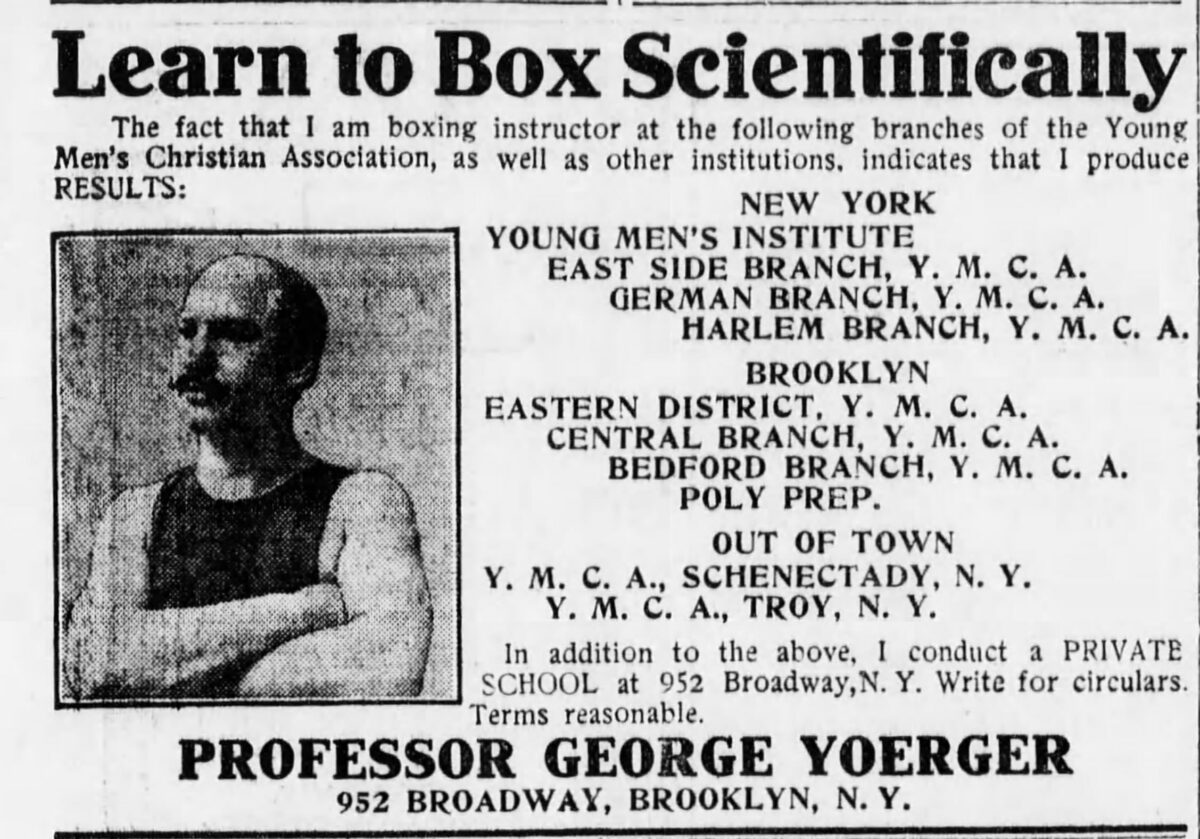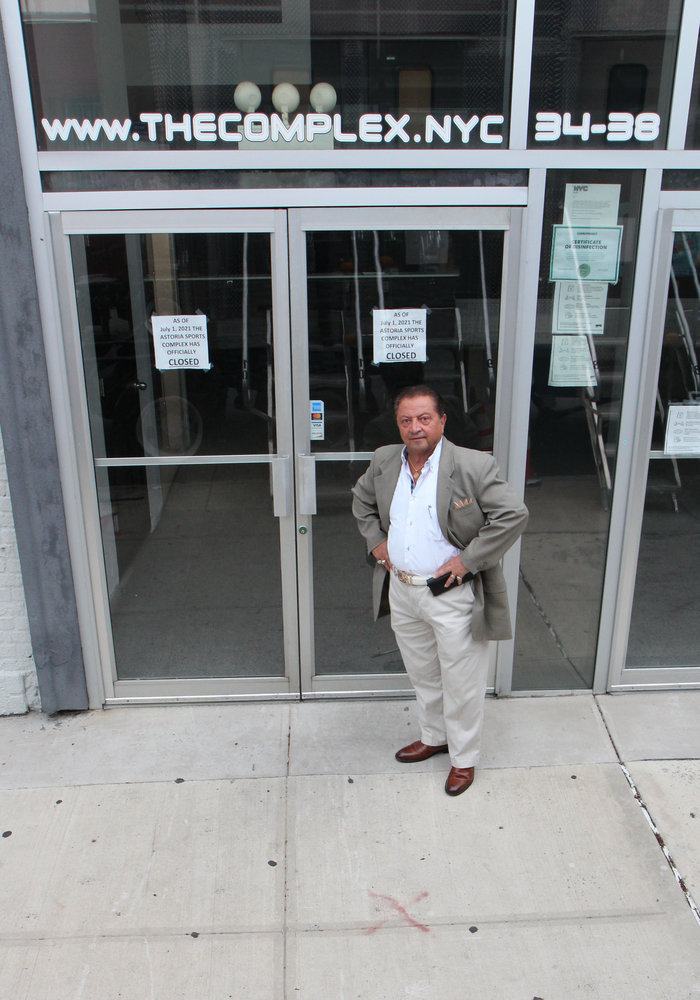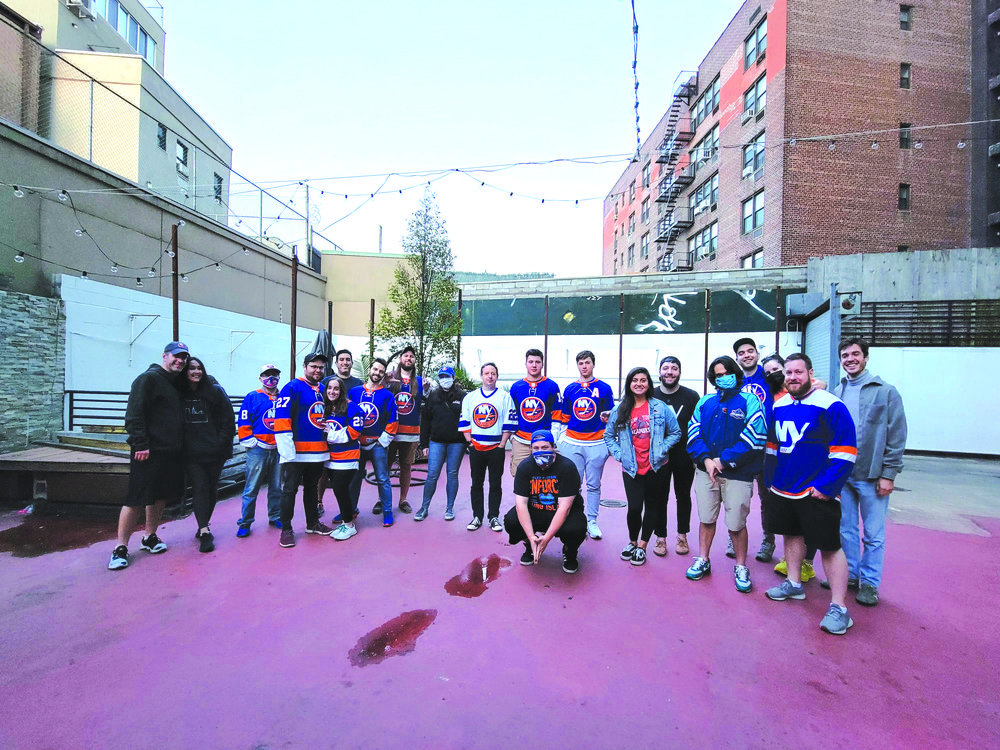The Unconventional Boxing Instructor
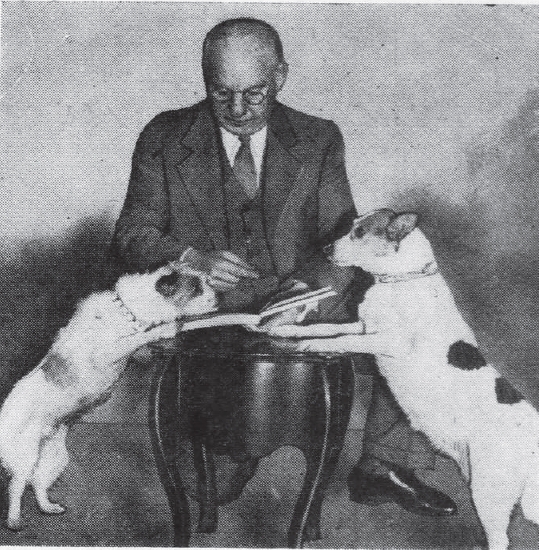
Professor Yoerger with Trixie – “the dog with the mind of a child” and Skippy.
By Ed Wendell | projectwoodhaven@gmail.com
George Yoerger’s future was set when a muscular stranger with a handlebar mustache walked on to his farm in East Norwalk, Connecticut and inquired about renting the family’s barn.
“I’m John L. Sullivan,” the man said, introducing himself. “I’m champion of the world.” The legendary Sullivan, aka The Boston Strong Boy, was the first heavyweight champ. He spent the next few months training on the Yoerger farm, and young George soon knew what he wanted to do for the rest of his life.
Inside the ring he was a tough fighter, but his true calling was outside the ring, where he became a well-respected boxing and self-defense instructor. At the turn of the century, he moved to Brooklyn with his wife Minnie and opened a gymnasium at Broadway and Myrtle which was an almost immediate success. Dubbing himself “Professor” Yoerger, he lured in customers with the promise: “Six lessons free if you hit me on the nose!”
But while he was busy training pupils how to box, Minnie began to get cozy with one of his friends and the neighbors began to talk. One approached Yoerger with these suspicions and one night he and two private detectives burst into their apartment and found his friend hiding in the bedroom.
Yoerger sued his friend for $100,000 for alienation of affection and the trial made scandalous headlines for several months.
He returned to the headlines several years later when a small gang of thugs tried to rough him up for some money and a blue diamond he had in his possession. They failed to see the flaw in their plan and the Professor of boxing whipped the bunch of them and called the police. Another public trial followed, and Professor Yoerger was hailed a hero.
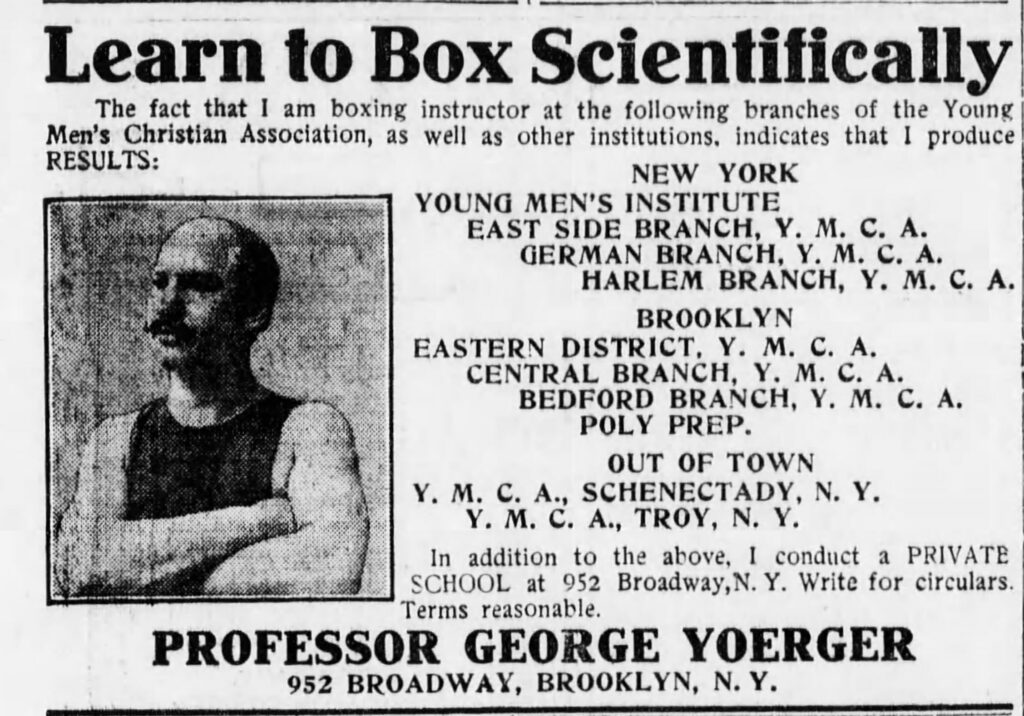
Professor Yoerger Ad for his services (with his picture).
Later in life he met a much younger woman and they fell in love. The woman was Florence Lott, whose family was among some of the earliest residents of Woodhaven, many of whom are still buried in the Colonial Era Wyckoff-Snedicker Family Cemetery (on 96th Street in Woodhaven).
They moved into Lott’s family home on Lott Avenue (named for the family, and today known as 76th Street), a few hundred feet south of Jamaica Avenue, where it still stands today.
Yoerger semi-retired from the boxing profession and closed the gym in Brooklyn (though he opened a small private gymnasium in the backyard of his home in Woodhaven). Since training was still in his blood, he embarked on a second career – training dogs. He started his training with his own dog, Trixie, who he would take out for paid exhibitions.
Trixie’s most popular trick was to sit at a table, open a menu, select a meal, go through the motions of eating and when finished, wiping her face with her paw.
Trixie was advertised as the dog “with the mind of a child,” and with each public appearance, his renown as a dog trainer grew, and this business flourished as well. He was commissioned to write several newspaper articles giving owners advice with their dogs and his fame was such that he and Trixie were asked to take part in a dog show at the Jamaica Arena to help raise funds for the Helen Keller Free Clinic.
Helen Keller herself attended the show and it was said that she affectionately pet many of the hundreds of children and their dogs that took part in the show. She told one reporter that if she was to be granted but a single split-second of sight that she would choose to see “a child and its dog.”
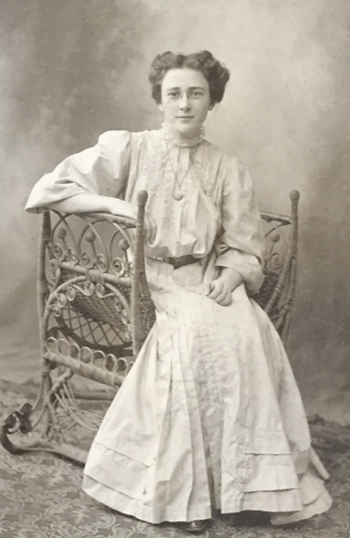
Florence Lott, the Professor’s 2nd wife and a member of one of Woodhaven’s most prominent early families.
In his later years, Yoerger added fencing, trick pistol shooting, and diamond appraising to his activities, also finding time to found the Long Island Society of Magicians. In 1949, Professor Yoerger (by now in his 80s) appeared on television, providing commentary for live bouts being broadcast from the boxing arena at Ridgewood Grove.
Professor George Yoerger would pass away in 1951 shortly after his 84th birthday (his young wife Florence would outlive him by over twenty years, passing away in late 1973). He had a long, remarkable life, and it’s even more remarkable when you discover the fact that he was deaf his entire life.
Professor George Yoerger was a colorful character and you can learn more about him and other interesting people from our community’s rich history at twice monthly meetings of the Woodhaven Cultural & Historical Society (at Neir’s Tavern, 78th Street and 88th Avenue, at 7 p.m. on the 3rd Monday of every month and on Zoom at 8 p.m. on the first Tuesday of every month. Email us at woodhavenhistory@gmail.com for more information and to get on our mailing list.

